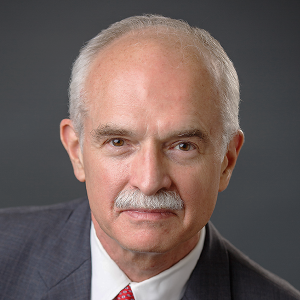Throughout history, the foundation of civilization has always been the family, through which the bonds of community are formed, children are reared and educated, civic virtues are upheld, moral boundaries are secured, and the enduring cultural and legal institutions of free societies are rooted.
However, the spread of secularism in Western societies since the Age of Enlightenment of the 17th and 18th centuries has resulted in the spread of moral relativism, along with the rise of powerful, secular nation-states, while religion and the traditional family have been increasingly viewed as obsolete, naïve, and even dangerous—in need of being controlled and even displaced by bureaucratic elites who seek to restructure communities around centrally planned schemes in education, welfare, housing, healthcare, employment, and law.
In the United States, the American family has never before been confronted with such powerful threats to its standing and stability. While many scholars agree that a loving mother and father in a healthy marriage are vital to the well-being of children, the nuclear family is under enormous assault in the academic and popular cultures, which disparage traditional morality and civil manners. Children are left unloved and without role models to nurture and protect them as they journey through adolescence into adulthood and beyond. As a result, 85 percent of prison youths are from fatherless homes, as is the case with 72 percent for high school dropouts, 80 percent for rapists, and 63 percent for teenagers who commit suicide.
The welfare state rewards teenage girls with subsidies for raising children without fathers, and the breakup of family structures among the poor has been the result. The single-motherhood trend rapidly spread from the very poor into mainstream society, severing the connection between marriage and childbearing, producing fatherless homes and children prone to social pathologies like substance abuse, teenage suicides, and predatory behavior.
With single women having been subsidized by the government to raise children without men, the ill effects of the welfare state on women also now apply to unskilled, single men, who are enfeebled by losing incentives to work, who work fewer hours and for less money, and who receive fewer advancements than married men. This, in turn, can lead to increased mental health problems, higher rates of suicide, exacerbated family conflict and violence, and a sense of emasculation overall.
William Galston of the Brookings Institution and Elaine Kamarck of Harvard’s Kennedy School have stated that the “The relationship [between single-parent families and crime] is so strong that controlling for family configuration erases the relationship between race and crime and between low income and crime. This conclusion shows up time and again in the literature."
Along with the growth of the welfare state, marriage law itself has been socialized by state governments and, in the process, “no fault” has been substituted for the ability of couples to make and enforce their own private contracts, including provision for fraud, abuse, abandonment, and malfeasance. As a result, the definition of marriage itself is now uncertain as various jurisdictions have declared the traditional family no longer to be the standard, and what is called marriage is not what a couple agrees to in a marriage contract through private church and other institutions but rather what is imposed by government edict.
As the welfare state has expanded, the family has declined and serious social problems have proliferated. With the rise of the welfare state, instead of aiding those in need to become fully productive family members and citizens, dependency and idleness have resulted instead.
So, what should be done now? The answer should include the following:
- Privatize and depoliticize marriage and marriage law so that traditional marriage is protected through private church and other institutions that would again be free to establish standards to educate and nurture couples and their families for life.
- End all welfare programs that subsidize family breakups of mother, father, and children. End all marriage penalties in the tax law and abolish all estate taxes. Reestablish time limits on welfare payments and private work requirements and then phase out all government welfare systems and eliminate restrictions on the re-creation of mutual aid societies, private charities, and other institutions to serve the needy. Reduce tax rates with the simultaneous elimination of the welfare state.
- Foster pro-marriage, pro-religion, and pro-family private institutions and messaging, especially for young people. Cultivate private reconciliation programs to restore broken families and encourage the establishment of families whose formation has been inhibited by government policies as described above.







